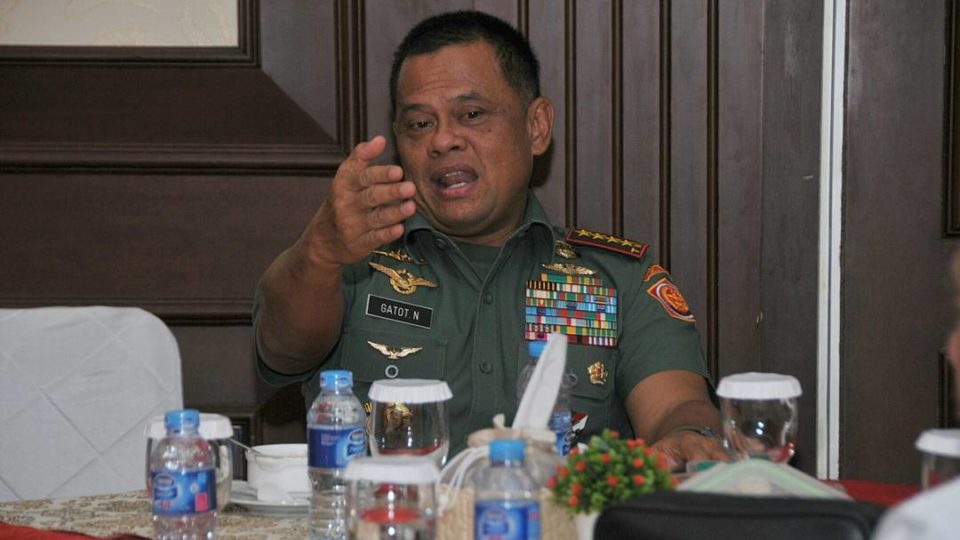The 2019 presidential election is widely expected to be a rematch of 2014’s contest between President Joko Widodo and Gerindra Chairman Prabowo Subianto, as the two rivals are the only ones who have declared their intent to run next year. However, much is going on behind the scenes in the highly dynamic world of Indonesian politics, and it’s still within the realm of mathematical possibility that we could see a third candidate in the form of former Indonesian Military (TNI) Chief Gatot Nurmantyo.
Gatot’s nomination rests on two main factors. The first involves the parties potentially backing Prabowo. While the former general declared he’s ready to run for president in 2019 last week, his candidacy is still far from assured as the mainstays of the opposition coalition, the Islamic-based National Mandate Party (PAN) and the Prosperous Justice Party (PKS), have yet to fully commit to Prabowo (so much for the “eternal coalition” pact between these parties — and Golkar, which has jumped ship to Jokowi’s coalition — in 2014). Prabowo’s Gerindra, which holds 13% of the seats in the House of Parliament (DPR), needs either one of those parties to meet the 20% threshold requirement to nominate a presidential candidate.
PAN has particularly been non-committal to Prabowo lately, publicly announcing that they’re eyeing alternative candidates. Yesterday, PAN Central Executive Board Chairman Ahmad Hanafi Rais, son of senior PAN politician Amien Rais (who is currently facing a blasphemy accusation), said that his party is strongly considering Gatot Nurmantyo for president, pending executive approval from his father. PKS, meanwhile, recently said their support for Prabowo is contingent on him picking a running mate from the Islamic party.
The second main factor that could lead to a nomination for Gatot is potential turbulence within the current government coalition, led by President Joko Widodo’s Indonesian Democratic Party of Struggle (PDI-P). With five parties in the coalition totaling 53.3% of seats in the DPR, Jokowi’s nomination is far more assured than Prabowo’s. However, one party in the coalition, the National Awakening Party (PKB), has hinted that their allegiances may lie elsewhere if their chairman, Muhaimin Iskandar, isn’t picked as Jokowi’s running mate.
Should PKB break away from Jokowi’s coalition, then the emergence of a coalition of Islamic parties is a real possibility. Together with the United Development Party (PPP) — whose allegiance to the government coalition also hinges on political promises made by Jokowi and PDI-P — PAN and PKS, these four parties combined represent 31.% of seats in the DPR.
Former President Susilo Bambang Yudhoyono’s Democratic Party, with 10.9% of seats in the DPR, is currently the only one of the ten parties without any affiliation to a coalition and could well lend their support to strengthen any of the three possible coalitions in 2019.
Of course, both the government and opposition coalitions could consolidate themselves before a possible third coalition emerges, in which case only two presidential candidates would be mathematically possible. Should that happen, Gatot could be a smart vice presidential pick for either Jokowi and Prabowo considering his rising popularity.
In a recent survey by Median, Gatot came in third behind Jokowi (36.2%) and Prabowo (20.4%) with 7% of votes for potential presidents. Gatot’s score marked a steady increase from his scores in previous surveys.




